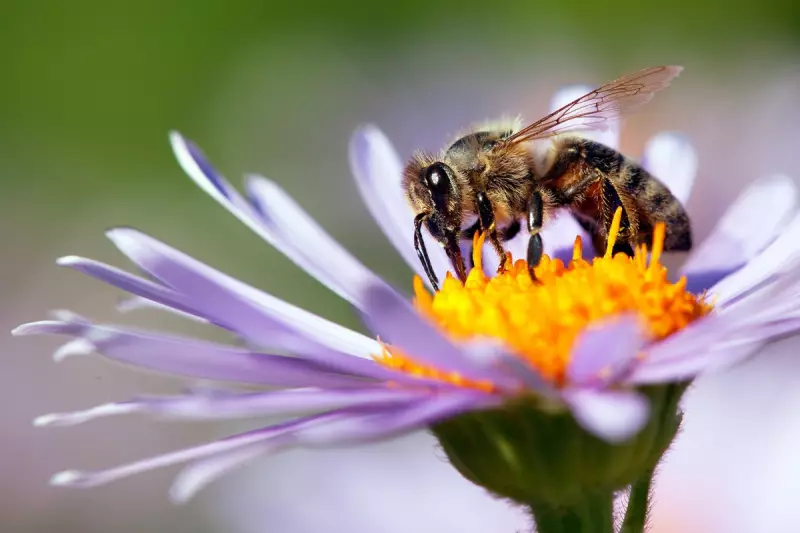
In a potentially game-changing breakthrough for global food security, UK scientists have developed a remarkable 'superfood' supplement designed to bolster honeybee populations against the devastating impacts of climate change.
The innovative formula, created by researchers at the University of Leicester, represents a critical intervention as bee colonies worldwide face unprecedented threats from extreme weather, habitat loss, and environmental stressors.
The Climate Threat to Our Vital Pollinators
Honeybees perform an irreplaceable role in our ecosystem, pollinating approximately one-third of the food we consume. However, climate-induced changes have severely disrupted their natural foraging patterns and nutritional sources.
Professor Eamonn Mallon from the University of Leicester's School of Biological Sciences explains: "Climate change is fundamentally altering flowering times and plant distributions. Bees are struggling to find adequate nutrition during critical periods, weakening their immune systems and making entire colonies vulnerable to collapse."
A Nutritional Breakthrough
The scientifically formulated supplement provides essential nutrients that mimic high-quality pollen, bolstering bee immunity and enhancing colony resilience. Early field trials have demonstrated extraordinary results:
- 40% increase in bee survival rates during extreme weather events
- Significantly strengthened immune responses to common pathogens
- Enhanced colony growth and reproduction rates
- Improved overwintering success despite climate stressors
Why This Discovery Matters Now
With the UK experiencing increasingly unpredictable weather patterns and temperature fluctuations, the timing of this breakthrough couldn't be more critical. The research team emphasizes that supporting pollinator populations is not just an environmental issue but a fundamental food security priority.
Dr. Hannah Sampson, lead researcher on the project, states: "What we've developed isn't just another supplement—it's a targeted nutritional intervention that addresses specific climate-induced deficiencies. We're essentially future-proofing bees against environmental changes that are already underway."
The Path Forward
While the superfood shows tremendous promise, researchers caution that it complements rather than replaces broader conservation efforts. Habitat preservation, pesticide reduction, and climate action remain essential components of bee protection strategies.
The research team is now collaborating with agricultural partners and beekeeping associations to make this technology accessible across the UK. With field testing expanding this summer, this British innovation could soon become a cornerstone of global bee conservation efforts.
As climate change continues to accelerate, such scientific interventions may prove vital in safeguarding the delicate ecological balance that sustains our food systems and natural world.






